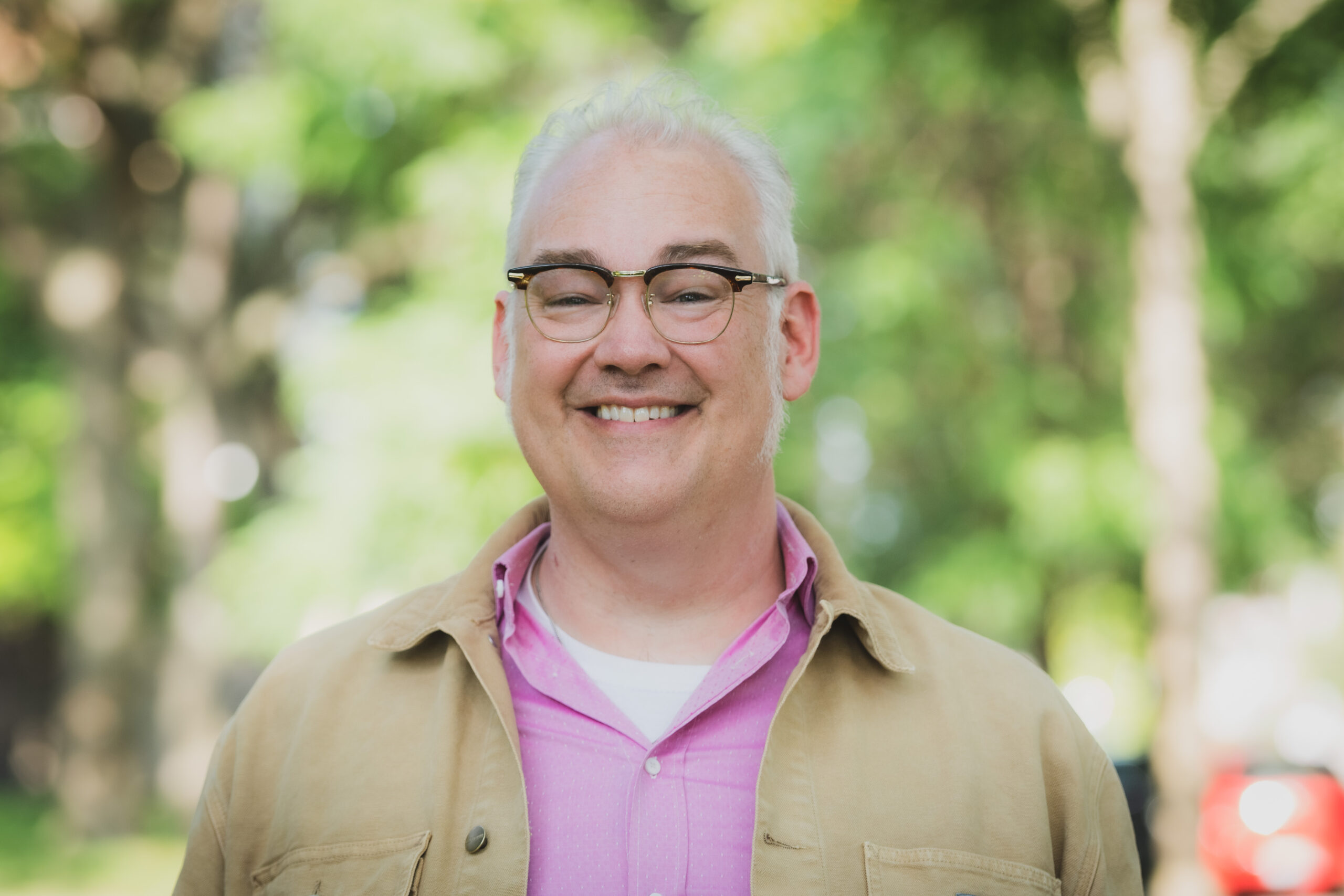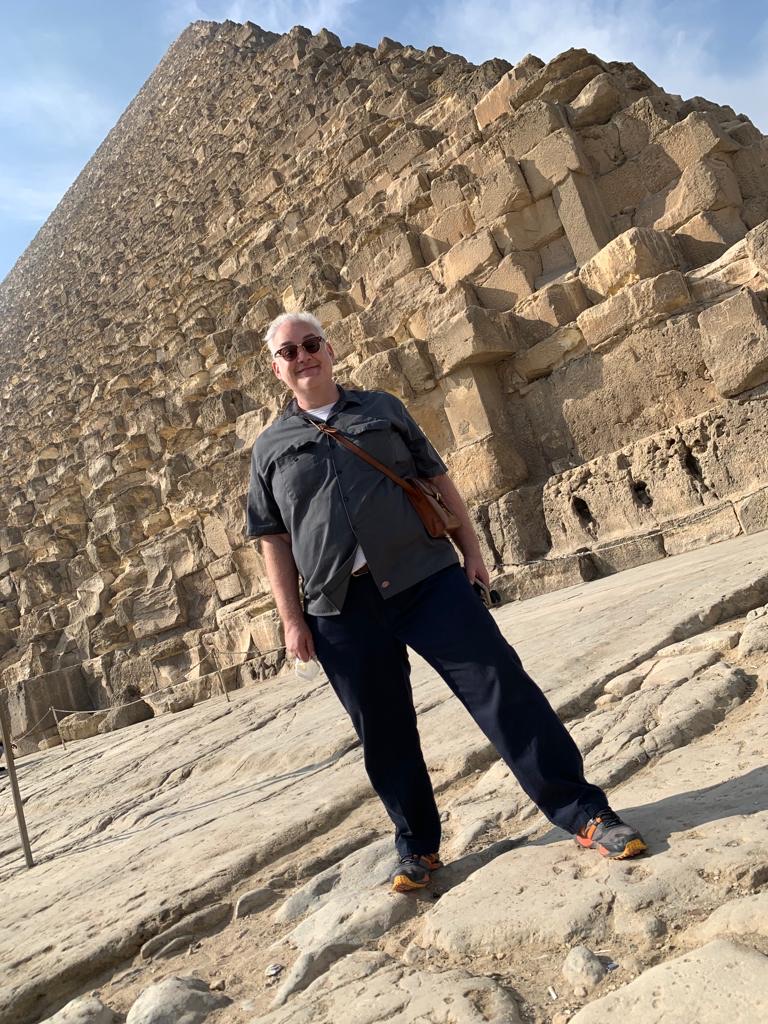Succeeding together: A look at Western’s new department chair Brian J. Bowe

In his new role of department chair, Brian J. Bowe aims to be a champion for the students and faculty to enjoy success at the highest level they can achieve.
Story by Raine Westfall

Western professor Brian J. Bowe took over Western’s journalism department chair seat this fall, to fill the shoes of the previous chair, Jennifer Keller. Elected by department faculty, Bowe will have the responsibility of collaborating with the department to organize and help prepare its students for success.
One of the things that makes the journalism department so unique, Bowe said, is how well the department prepares its students to step into the field. Western’s journalism department has left its fingerprints all over Washington state, he added, as well as on a national scale with alumni earning Pulitzers and working in top-tier institutions.
“I think it’s important that we recognize we’re not just educating workers, we’re educating leaders who can push journalism into new directions, because the only thing that has been constant in this field over my career has been breakneck change,” Bowe said. “We don’t want to just educate people who can go in and be a cog in a wheel, we want to educate the people who are going to lead the industry into the future.”
Viewing the job as an obstacle remover for students and as a champion for them, Bowe wants to do everything in his power to help the faculty and students succeed at their highest level. To Bowe, the job is a great honor and tremendous responsibility, but holds a much deeper personal meaning.
His father, Jack Bowe, was a lifelong journalist spanning a 50-year career working as a news director in numerous states, achieving an induction into the Nevada Broadcasting Hall of Fame and an Emmy award. Bowe grew up in the newsroom, at the young age of 3, he began to cultivate his passion for journalism, which eventually grew into a career following in his father’s footsteps.
“That’s where I really developed my interest in journalism. When I was a very little kid. He used to anchor the six o’clock news, I would watch just so I could see my dad, and that was a tremendous education. When I was a little bit older, he would take me into the newsroom,” Bowe said. “He passed away a little more than a year ago. And I just think about having achieved this position. I mean, everybody in my family is proud that I’ve gotten here, but it would have been a particularly meaningful thing for him to see.”
Looking forward to adding to the department’s history of excellence, Bowe said he intends to strengthen the department’s academic assessment and curriculum design.
“Sometimes people look at these kinds of administrative tasks as a burden, but I actually find them to be really interesting puzzles,” Bowe said. “Once I settle in, I’m really eager to tackle some of those things.”
As part of a decade-long research team analyzing accreditation and assessment in the journalism field, Bowe brings a keen fascination of academic evaluation and curriculum design to the department’s table. To figure out how to better serve and support students and faculty, Bowe particularly wants to focus on outreach to alumni to hear about their experiences in the journalism program.

In addition, Bowe aims to address new projects to provide ways the department can help students find success after graduation in a job market facing economic difficulties. Anticipating activities in a post-pandemic world, he is also looking forward to reestablishing the department’s social life and taking opportunities to stage on-campus events again.
Bowe also brings an international focus to his work. Over his career, he and has held international teaching appointments, including at the Sorbonne University in Paris, France, the University of Jordan in Amman and the American University in Cairo, Egypt.
Bowe was awarded a U.S. State Department grant to bring WWU students abroad to Tunisia’s main public journalism school in 2019. Since the grant’s initial rollout, the program has faced multitudes of restructuring efforts due to the pandemic, but finally this summer Bowe and his colleagues were able to bring their Tunisian cohorts to the Association for Education in Journalism and Mass Communication conference in Detroit.
Recently Bowe received a new State Department grant to conduct media literacy training for people who work in the creative industries in Palestine. Last year Bowe went on leave to teach in Cairo, working in Egypt he said benefited his teaching practice by opening his eyes to different ways of seeing the world.
“When you’re immersed within the culture you grew up in, you don’t always understand the blinders that are put on you,” Bowe said. “Having to reach students with whom I had such different points of reference, was a very good exercise for me. And I think it made me a more empathetic and a more culturally sensitive teacher here.”
Building on his own work abroad — and the positive experience WWU students had in Tunisia — Bowe hopes to tackle funding to offer more international opportunities for students.
Bowe is also recognized for his academic research. One of his main areas of research relates to the ways Muslims are framed in media coverage. He has published research on coverage of France’s burkini debate, controversies about the construction of mosques in U.S. cities, and the strategies Muslim advocacy organizations adopt to counter biased media narratives.
With the increased demands of the chair position, Bowe said he is planning to do less academic research and instead focus more on his professional specialty — music journalism.
Bowe, a longtime guitarist and bassist, said music has played a major force in his life. He currently plays guitar and bass in the band Voluptuous Panic.
As a musician himself, Bowe is intently interested in the music scene, he has published many articles and books on bands like The Clash, The Ramones and Judas Priest. Recently he published a magazine article about renovations to Detroit’s Motown Museum. He received a grant from the Rock and Roll Hall of Fame Foundation to do archival research for an ongoing book project about Detroit’s revolutionary rock band MC5.
“As I look toward doing more music journalism, I’m very interested in the use of pop culture as a tool of resistance, which is something you see a lot in the U.S. for sure,” Bowe said. “But, you know, you see it in different ways in Egypt or Tunisia or Palestine. So that’s a topic that I’m toying around with these days.”
But Bowe said his main focus is on the journalism department. When speaking to his colleagues in the department about his desire to be chair, Bowe said he told everyone that he wanted to adopt as his motto, “let’s succeed together.”
“When I hear the really impressive things our students do after graduation, I think I think we are fulfilling that mission,” Bowe said. “And I want to make sure that we keep our eye on that.”
